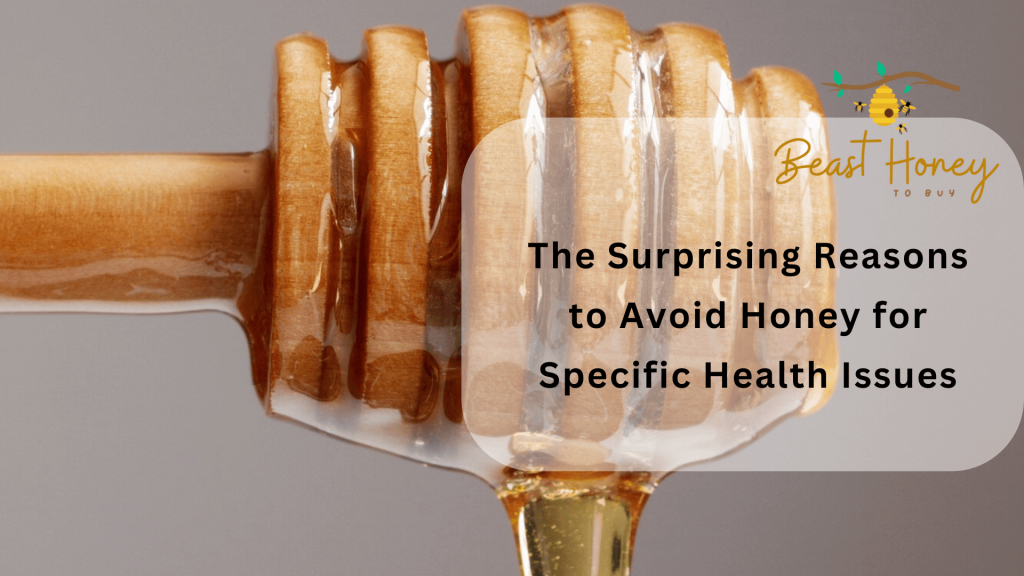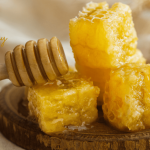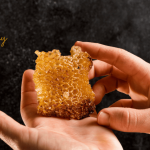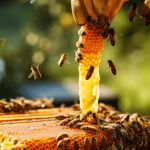Honey should only be used sparingly because it is a type of sugar.
According to recommendations from the World Health Organization, adults should consume no more than 10% of their calories from natural or added sugars, such as those found in fruit juices, syrups, and honey.
The current Dietary Guidelines for People also state that natural sugars like honey or added sugars shouldn’t account for more than 6% of an adult’s total caloric intake.
Thus, of 2,000 calories a day, the total amount of calories from sugar, honey, and other added or natural sugars should not exceed 120. It is approximately 40 grams, or two tablespoons, of honey.
Nonetheless, children under the age of one year should not be given honey in any form.
However, honey has several health advantages when taken in moderation, including:
- Qualities that are antibacterial and anti inflammatory
- Cough suppressant (which newborns should not be given)
- Healing of wounds and burns
- Heart wellness
- Blood cholesterol control
- Gum swelling and mouth sore healing
- Handling hay fever and other seasonal allergies
- Increases physical performance
- Relief from cold sores
- Lustrous hair and skin
- Facilitates digestion
- Reduces asthma
- Helps in the healing of stomach ulcers
- Decreases sunburn
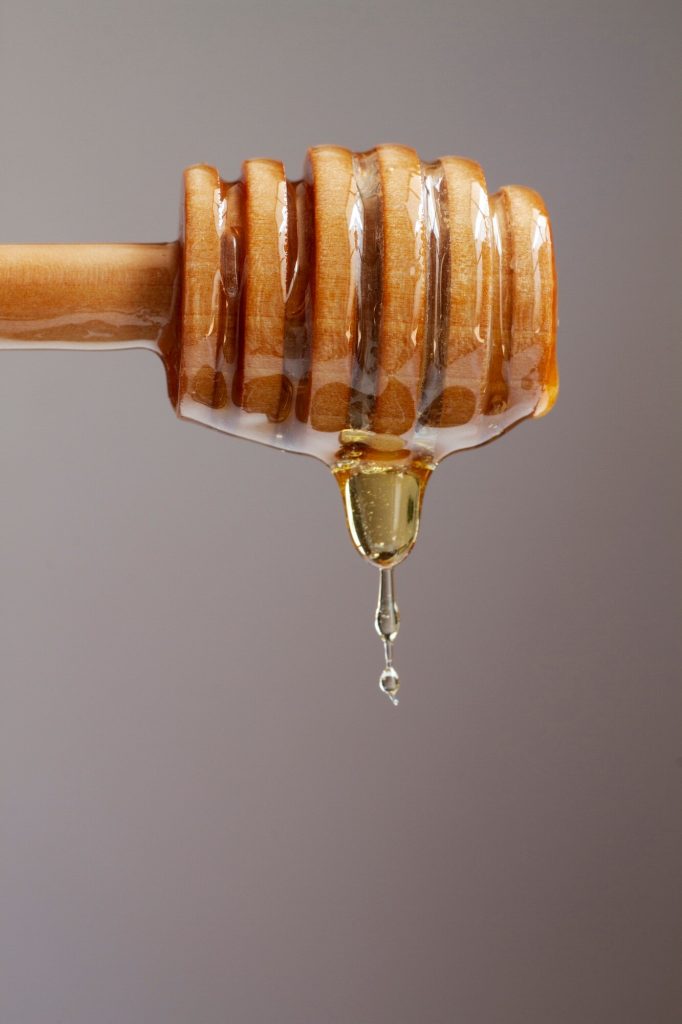
Is honey associated with any negative effects?
Due to the serious risk of botulism, a severe form of food poisoning, honey should not be given to infants younger than 12 months of age.
It’s also imperative to stay away from honey made from rhododendron flower nectar as it contains a toxin that can lead to major health problems like low blood pressure, chest pain, and heart problems.
Before consuming honey, consult your doctor if you are taking any medications (such as blood thinners, antiseizure drugs, antidepressants, antifungals, or steroids), as honey may exacerbate their side effects.
Due to its pollen origin, honey has the potential to exacerbate pollen allergies in those who are sensitive.
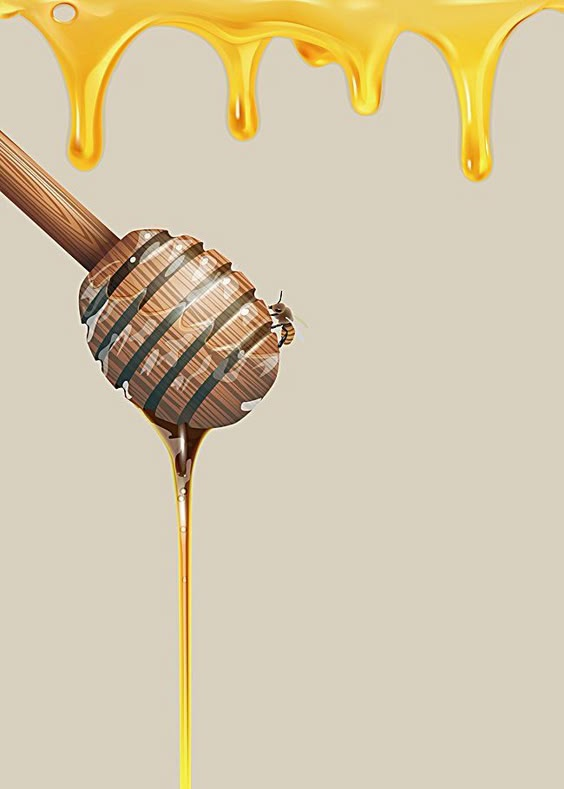
Is honey safe to eat when expecting?
When taken in moderation as food, honey is generally safe for women who are pregnant or nursing.
Women who are pregnant or nursing should refrain from using honey topically or for medicinal purposes because there is insufficient information about its safety in these situations.
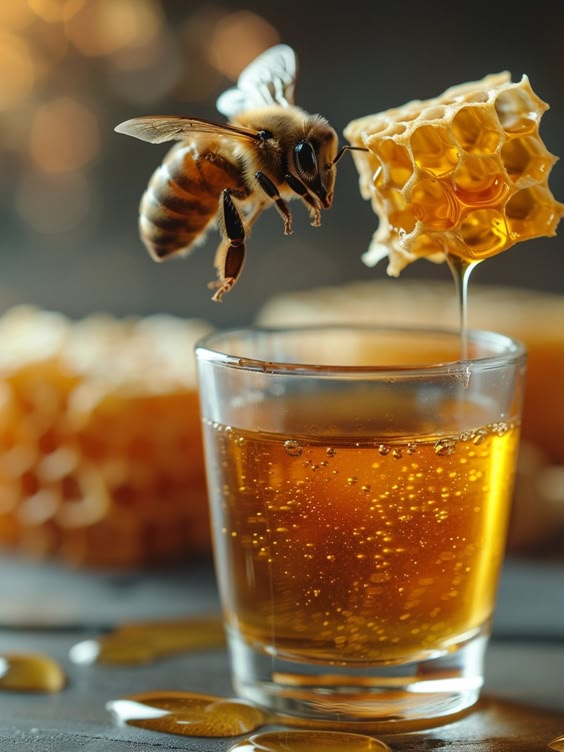
Is honey safe for diabetics to consume?
When taken in excess by individuals with diabetes, honey can elevate blood sugar levels because it is a sugar.
Moreover, honey has been shown to raise glycated hemoglobin levels, which indicates the average blood sugar over an extended period of time.
After speaking with a physician, honey can be added to a diabetic diet in moderation. Honey may increase the risk of infection, so people with diabetes should avoid applying it at dialysis exit sites.

6 Amazing Applications for Honey That Most People Are Aware Of
Honey has been used for many purposes by humans for many centuries. They have utilized it for both medicinal and culinary purposes.
Honey is well known for both its inherent sweetness and its antibacterial properties.
It is now a well liked option for healing wounds and other medical conditions as a result. We will examine a few lesser known applications for honey in this blog post.
This includes a method for enhancing the skin’s health and appearance as well as a natural energy enhancer.
1. Honey’s Healing Properties
Because honey has antibacterial qualities, it has been used for centuries as a natural wound care remedy.
Its high sugar content inhibits the growth of microorganisms and the spread of infection by creating an environment that is difficult for bacteria to survive in.
Particularly from New Zealand, manuka honey has antibacterial properties due to the presence of methylglyoxal and hydrogen peroxide.
According to studies, applying honey to wounds such as burns, cuts, and other wounds can hasten their healing and minimize scarring.
When honey is applied to wounds instead of conventional treatments, it has also been discovered to lower the risk of infection and speed up the healing process.

2. Honey as a Medicinal Substance
Since ancient times, people have used honey, another natural sweetener, to help with digestion.
It can ease stomach discomfort because of its anti inflammatory and high antioxidant content.
Honey also contains enzymes that help the body absorb nutrients by aiding in the digestion of food.
The body can break down food more efficiently if stomach acid is produced in response to honey consumption prior to a meal.
Because it is thought to balance all three doshas, or energy types (Pitta, Kapha, and Vata), honey is referred to in Ayurvedic medicine as a “tridoshic” food.
The body finds it nourishing and grounding because it is regarded as heavy and oily. While calming Pitta dosha, it is said to calm Vata and Kapha doshas.
Honey is also thought to be good for the immune system, aid in digestion, and help flush toxins from the body, according to Ayurvedic doctors.
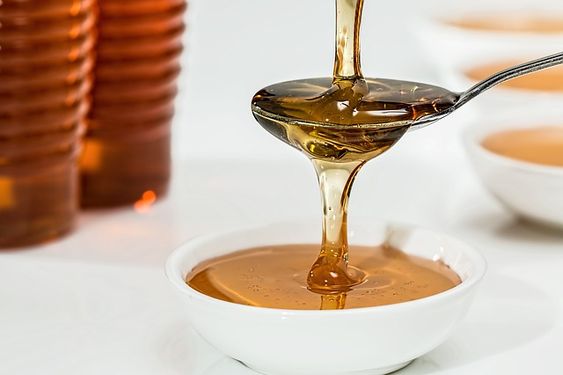
3. Honey As A Natural Energy Booster
Honey without added sugar is known to be fairly sweet as well.
Due in part to its high sugar content, which the body can easily absorb and quickly convert into energy, honey is thought to be a natural energy booster.
Further vitamins and minerals that honey contains in trace amounts include iron, zinc, and vitamin B6. These nutrients may also help with the energy boost.
Honey is a natural energy booster that has been recognized by Ayurveda, an Indian traditional medical system.
It is recommended to consume honey on an empty stomach in the morning to improve digestion and energy levels, or to mix it with warm milk or water before bed to promote better sleep and increased energy the following day.
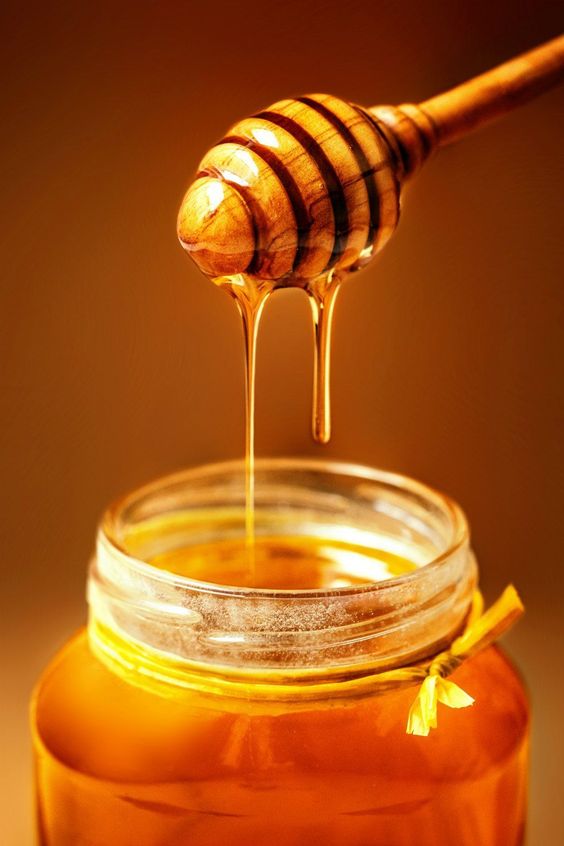
4. Honey as a Natural Sleep Aid
Better sleep can also be encouraged by consuming honey before bed.
It can prevent the release of hormones that can wake someone up and encourage a deeper, more restful sleep because it is a natural source of glucose and raises blood sugar levels.
Honey is regarded by Ayurveda as a “sattvic” food, meaning that it helps to maintain harmony and balance within the body.
Honey is suggested by Ayurvedic practitioners as a natural remedy for general weakness, exhaustion, and low energy.
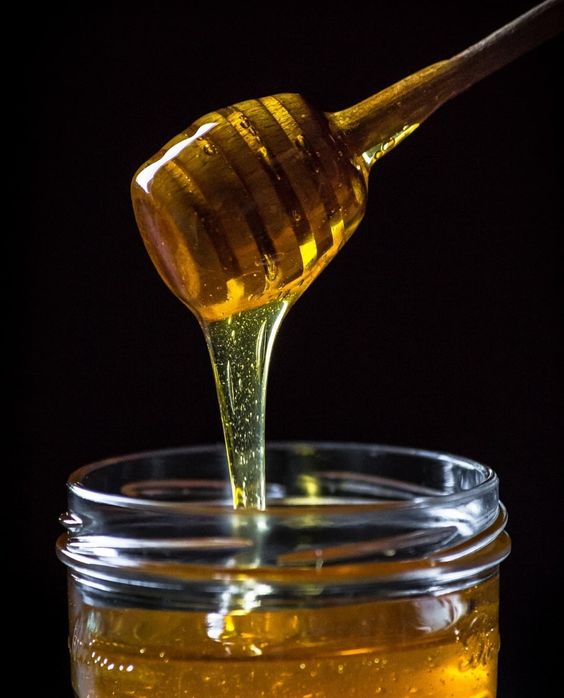
5. Using Honey as a Natural Skincare Ingredient
One natural product that can be used to moisturize and take care of the skin is honey.
When applied topically, it functions as a naturally occurring humectant, drawing and holding moisture to the skin.
In addition, honey has antibacterial and antioxidant qualities that can help protect the skin from bacterial and free radical damage.
Honey is used as a remedy in Ayurveda for a number of skin ailments, including eczema, dryness, and acne.
Its antibacterial and anti inflammatory qualities help fight the bacteria that cause acne and relieve irritated skin, respectively.
The body’s doshas are also known to be balanced by it, which may help the skin appear balanced.
Furthermore exfoliating and nourishing the skin are the natural sugars found in honey.
In order to create a skin treatment that is nourishing, it can also be mixed with other Ayurvedic ingredients like licorice root, turmeric, and sandalwood.
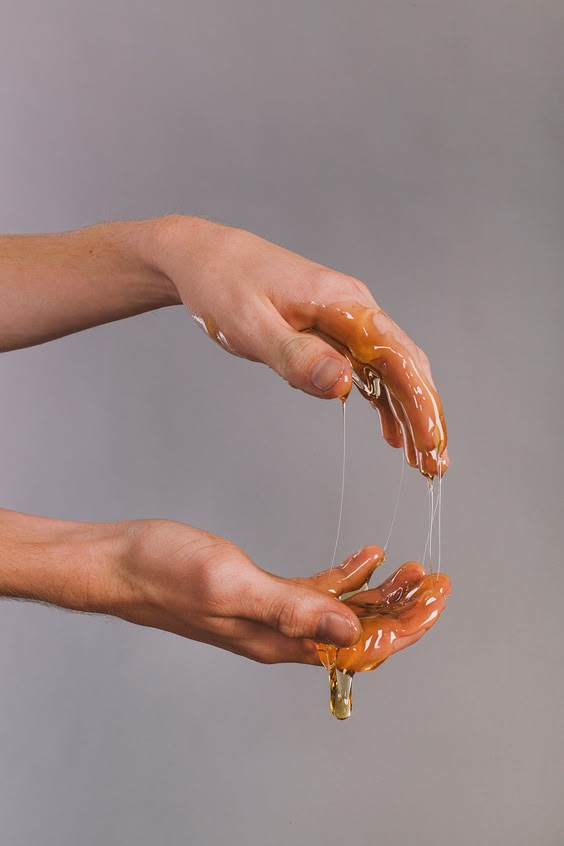
6. Using Honey as a Natural Allergy Treatment
Honey can also be used as a home remedy for allergies.
The idea behind it is that people can develop immunity to allergens by eating honey produced from the pollen of plants that trigger allergies in a particular area.
To ascertain its efficacy, more research is necessary as there is a dearth of scientific evidence.
It is advised to begin consuming small doses of local honey and then progressively increase the dosage to see if it is effective for you.
It is best to stop consuming it if your symptoms worsen and discuss other treatment options with your allergist. Ayurveda recommends using honey in a number of ways to boost immunity:
- The Ayurvedic term “Rasayana” refers to the properties of honey, which are thought to promote general wellness and rejuvenation.
- It is believed to possess “Vira Kalyana” qualities, meaning it can strengthen the body’s defenses against infections and disease.
- It is also thought to function as a natural aid in the body’s digestion of impurities, which is one of the main causes of disease.

Who Needs to Stay Away From Honey?
One can take honey without hesitation if one maintains a healthy lifestyle, exercises frequently, is not overweight, and does not have diabetes.
We have been hearing about the health advantages of honey since we were young children.
We are aware of the abundance of healthy nutrients found in honey. However, that isn’t always the case.
There are situations when it might not be the best for your health to consume honey.
If your lifestyle is healthy and you exercise on a regular basis, honey is a good choice.
Consuming honey, however, may not be good for you if it is not. It is not possible to achieve your health goals through honey consumption if you are overweight, obese, pre diabetic, or diabetic.
Honey provides numerous health benefits. Honey is a strong food anti inflammatory and supports heart health improvement. It also heals wounds. However, there are also certain drawbacks.
A tablespoon of honey has roughly sixty calories in it. If you eat it occasionally, you won’t gain any weight.
However, too much of anything is bad. Therefore, if you eat a lot of honey in one day, you might end up gaining extra weight.
It will raise blood sugar levels and impede weight loss. It might thus keep you from accomplishing your weight loss goal.
Who then has the ability to take honey? Honey is safe to consume for anyone who follows a healthy diet, works out frequently, is not overweight, and does not have diabetes.
It is best to stay away from honey if none of these conditions apply to you because it will prevent you from achieving your objectives.

Conclusion
Not all honey is used as a sweetener. It has a wide range of unexpected uses and advantages. One such instance is its capacity to facilitate digestion and wound healing.
It can also be used in a variety of culinary applications and acts as a natural replacement for sugar.
You can purchase honey online in this day and age. Therefore, you might want to try some of the methods described in this text if you’re interested in adding more honey to your daily routine.

